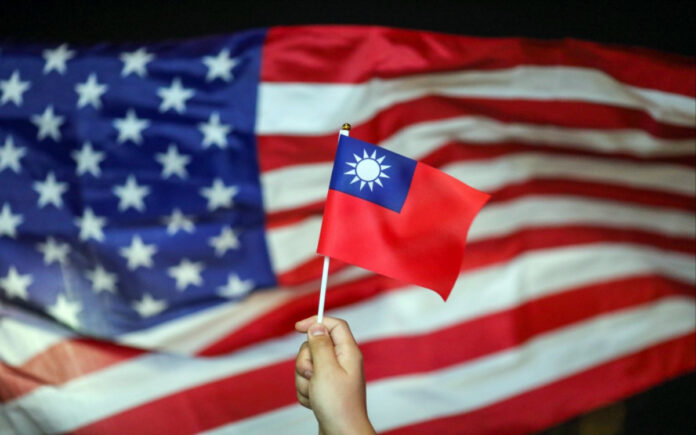Taipei: A senior U.S. diplomat responsible for managing relations with Taiwan has arrived in Taipei, as reported by the de facto U.S. embassy on Tuesday. Taiwanese officials have been working to downplay Donald Trump’s recent criticisms of the island’s vital chip industry and defense requirements.
Despite lacking formal diplomatic ties, the United States remains Taiwan’s most significant international supporter and arms supplier. The American Institute in Taiwan, which oversees the unofficial relationship, announced that Ingrid Larson, Managing Director of its Washington Office, will be in Taiwan for meetings from October 28 to November 1.
The visit is framed as part of the United States’ strong commitment to Taiwan and aims to enhance the growing U.S.-Taiwan partnership. During her stay, Larson will address ongoing U.S.-Taiwan collaboration on topics of mutual interest, including regional security, trade and investment, and educational and cultural ties.
Trump, the Republican presidential candidate in the upcoming November 5 election, has unsettled Taiwan’s democratically elected government by asserting both in July and again over the weekend that Taiwan should compensate the United States for its defense and that it has appropriated American semiconductor business. “Taiwan, they stole our chip business. They want us to protect and they want protection; they don’t pay us money for the protection,” Trump stated during a recent appearance on “The Joe Rogan Experience” podcast.
Following Trump’s remarks, American Depositary Receipts for Taiwan Semiconductor Manufacturing Co, the world’s largest contract chipmaker and a significant supplier to companies like Nvidia, fell by 4.3% on Monday, with shares in Taipei declining over 2% on Tuesday.
In response to Trump’s comments, Taiwan Premier Cho Jung-tai maintained a diplomatic stance, emphasizing that Taiwan-U.S. relations are built on shared values as democratic allies. “I also believe that the major U.S. political parties have an absolutely high degree of consensus on the understanding of the U.S.-Taiwan relationship,” he remarked.
Economy Minister Kuo Jyh-huei expressed respect for the opinions of “international friends.” He noted, “U.S. relations with Taiwan have developed steadily over time, and both parties share the same attitude toward Taiwan.”
Also Read | Beijing Warns of Deep-Sea Espionage Threat in South China Sea
While Taiwan lacks a formal defense treaty with the United States, it has significant arms orders and has repeatedly committed to increasing military spending. The Taiwanese government refutes Beijing’s sovereignty claims.
Taiwan enjoyed robust support during Trump’s administration from 2017 to 2021, including arms sales, a trend that has continued under President Joe Biden’s administration. Trump’s phone call with then-Taiwan President Tsai Ing-wen in 2016, shortly after his election victory, drew ire from Beijing, as the U.S. does not officially recognize Taiwan’s government, but was welcomed in Taipei.
Also Read | Israeli Strikes on Iran May Cut Key Missile Supply to Russia
With China’s military activities intensifying around Taiwan, including recent war games, Taipei is closely monitoring the implications of a potential new Trump administration, especially given the competitive polling landscape. Over the past three months, two former senior Trump administration officials, Kelly Craft and Nikki Haley, both former ambassadors to the United Nations, have visited Taiwan.
“Trump is going to expect some things from our friends and allies across the world, particularly friends like Taiwan who are under threat. He will expect you to carry your weight as a security partner,” Craft stated at a security forum in Taipei last month.



